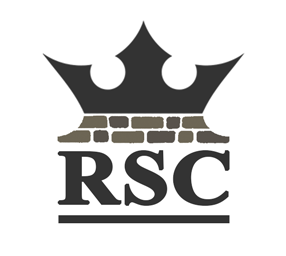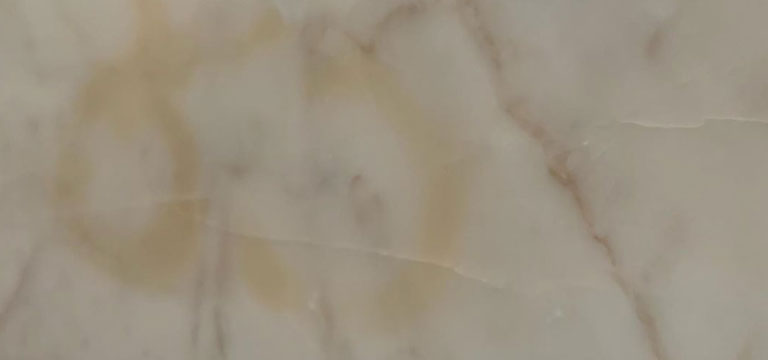Last Updated on April 25, 2025 by Royal Stone Care
Lemon juice and marble don’t suit each other very well! That’s because, of course, the former is an acidic liquid. And people often ask us about this, so we thought we’d post a blog with a few pointers. Read on to learn what to do if you get lemon on your marble floor, countertop, tiles or anything else.
Above all, never tackle lemon-related issues aggressively or impulsively, and don’t use harsh products on your marble.
Lemon staining on marble
The good news is that this is relatively rare, since lemon juice doesn’t typically penetrate deeply enough to stain a marble surface. But if the marble does absorb the liquid in this way, you’ll notice a darker colouring than with etching. And, unfortunately, after etching, staining then becomes more likely.
Get a free quoteLemon juice etching
This appears as a dull spot, or a mild corrosion of the stone surface’s shiny top layer. You may not even be able to notice this marking in all lights or from all angles. Polished marble, by the way, is particularly vulnerable to etching, even if it doesn’t actually stain that easily.
Our step-by-step top tips for removing lemon juice etching from marble
Step 1: Wipe up the spill immediately
First of all, after spilling this liquid, wipe up at once using water. Next, rub in some baking soda.
Step 2: Assess the damage
Then, if you’re confident that what you have is a lemon-juice etching, we’d suggest a specialist etching removal from a reliable supplier. (We at Royal Stone Care can talk to you about this.)
Step 3: Choose the right product
Don’t buy a general marble polish, but go for something designed to get rid of etching. This doesn’t have to be pricey, and it’s something you can use yourself at home.
Step 4: Avoid etching remover on matte finishes
Do NOT use etching remover on marble with a honed or matte finish. In these cases, you’re better off using a marble care specialist.
Step 5: Treat granite carefully
Granite marble etches with difficulty. If you notice yours is a different colour, you can try using acetone.
Step 6: Buff out light scratches
Finally, if the surface is also scratched, and not too deeply, you can try buffing with a soft sandpaper. But do so carefully, and only if you feel confident doing so yourself. After buffing, you’ll need to re-seal the stone.
Removing lemon stains from marble
Staining is indicated by a different colour and surface texture. A professional marble cleaning specialist will need to grind down the stone and repolish your marble.
As ever, prevention is better than cure – take care not to get lemon juice on marble in the first place. Use chopping boards and deal with any spillages immediately. If possible, try and cut lemons away from your marble surfaces.
We can help
Royal Stone Care is the leading London-based marble care specialist. We work with businesses and private customers across the city as well as just outside. If you have a problem with lemon juice on your marble piece, get in touch and we’ll be pleased to help, effectively and quickly.
Get a free quote
